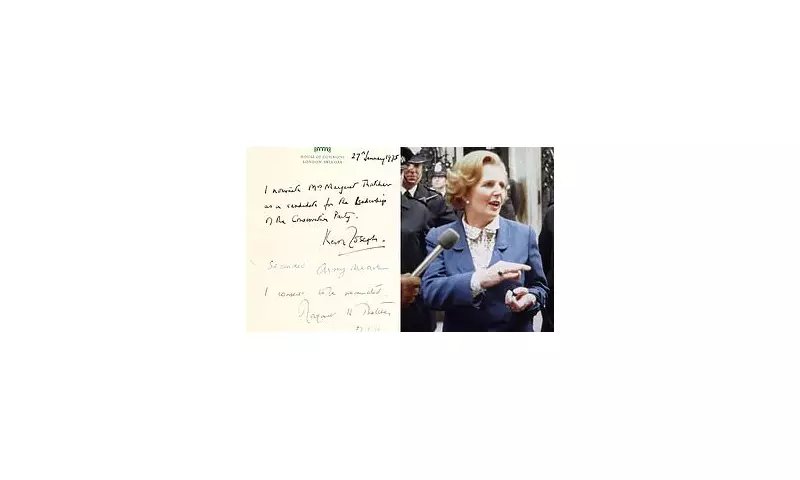
In a remarkable discovery that rewinds the clock to a pivotal moment in British political history, the handwritten nomination papers that propelled Margaret Thatcher to Conservative Party leadership have emerged from obscurity. These historic documents, scrawled in a modest garage, marked the beginning of Britain's first female Prime Minister's unprecedented rise to power.
The Garage That Changed British Politics
The unassuming setting where political history was made stands in stark contrast to the grandeur of Downing Street that would follow. It was in this humble environment that Thatcher's supporters gathered to formally nominate her for the Conservative leadership in 1975, setting in motion one of the most significant political transformations of the 20th century.
A Historic Handwritten Legacy
The nomination papers reveal the raw, unpolished beginnings of what would become the Thatcher revolution. The handwritten scrawls, now preserved as historical artefacts, show the signatures of key supporters who backed her audacious challenge to Edward Heath's leadership.
What makes these documents particularly extraordinary is their demonstration of political courage at a time when few believed a woman could lead the Conservative Party, let alone become Prime Minister. The papers represent not just bureaucratic formalities but the tangible evidence of a political earthquake in the making.
The Road to Number Ten
This garage-born candidacy would ultimately succeed beyond anyone's expectations. Thatcher's victory in the 1975 leadership contest positioned her to become Prime Minister within four years, beginning an eleven-year tenure that would fundamentally reshape British society, economy, and its place in the world.
The emergence of these papers during what would have been Thatcher's centenary year adds poignant significance to their discovery. They serve as a powerful reminder that even the most monumental political journeys often begin in the most ordinary of places.
These historic nomination papers now stand as testament to one of the most remarkable political ascents in modern British history, proving that revolutionary change can indeed begin in a garage.





